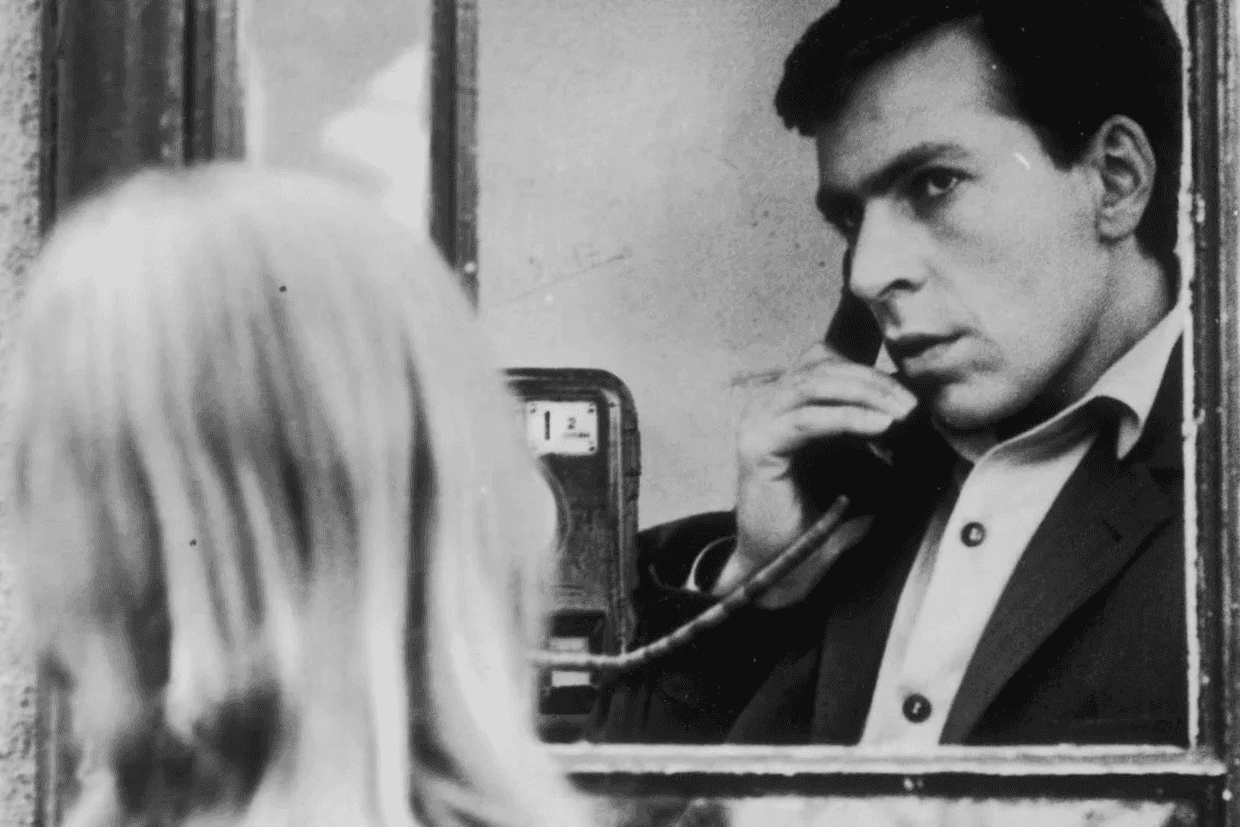
As Georgia’s government intensifies its campaign against queer representation and activism, a new wave of films showcasing queer Georgian stories are under threat.
In the years since Levan Akin’s gay romance And Then We Danced (2019) took Georgia and the indie film circuit by storm, at least a dozen films dealing with queer issues in Georgia — which one survey found to be the most homophobic country in Europe — have been released, including six since the start of 2023.
Akin’s latest, Crossing (2024), follows a grandmother on a journey from the Georgian Black Sea coast to Istanbul to find her long-lost trans granddaughter, while Felix Kalmenson’s Gamodi (2023) meditates on drag queens and the urban form during the COVID-19 pandemic. Veit Helmer’s Gondola (2023) is a meandering cable car-focused lesbian romance, while Andres Lübbert’s The Pride Liar (2023), Anna Stoeva’s Think Freedom: The Visible Man (2024), and Hermine Virabian’s Chemo Dao (2023) document the lives of a Georgian emigrant activist, a Tbilisi Pride organiser, and a Tbilisi drag queen, respectively.
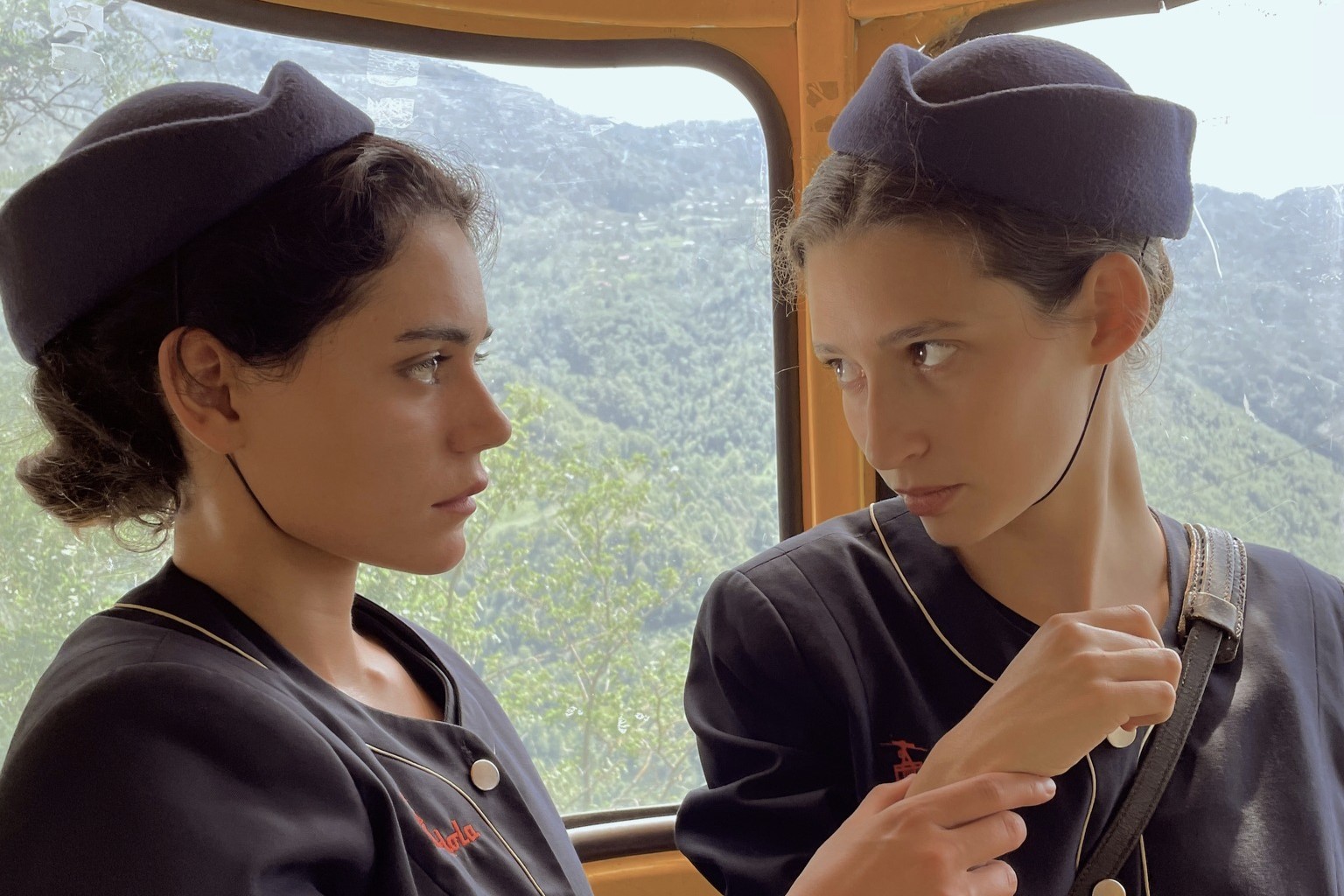
While queer Georgianish film is not new — see Sofiko Chiaureli’s gender-bending performance in Tbilisi-born Armenian director Sergei Parajanov’s The Color of Pomegranates (1969) — the steady flow of these films is notable in the intensely homophobic environment of contemporary Georgia.
Under Georgian Dream, the government has stood back while far-right groups violently force cancellations of queer film screenings and Pride Week events. In recent months, the government went a step further, tabling a ‘queer propaganda’ law that threatens to make making queer art a punishable offence.
[Read more: Explainer | What’s in Georgia’s new anti-queer bill?]
‘It was an experiment’
The stories behind the films are varied, but a number of the directors note that they did not plan to make a queer film.
Ioseb (Soso) Bliadze still doesn’t describe A Room of My Own as such, despite the groundbreaking lesbian sex scene — a first for Georgian cinema, according to the director.
Instead, it’s about a woman from the regions, Tina (Taki Mumladze), who comes to Tbilisi and finds herself and her freedom.
‘The idea for this film came along the way, it didn’t come like “let’s shoot a film about women in patriarchal society” ’, says Bliadze.
It was the middle of the pandemic, nobody had jobs, two of his actor friends — Mumladze and Mariam Khundadze — were living together in an apartment in Tbilisi and a friend had cameras they could use for free.
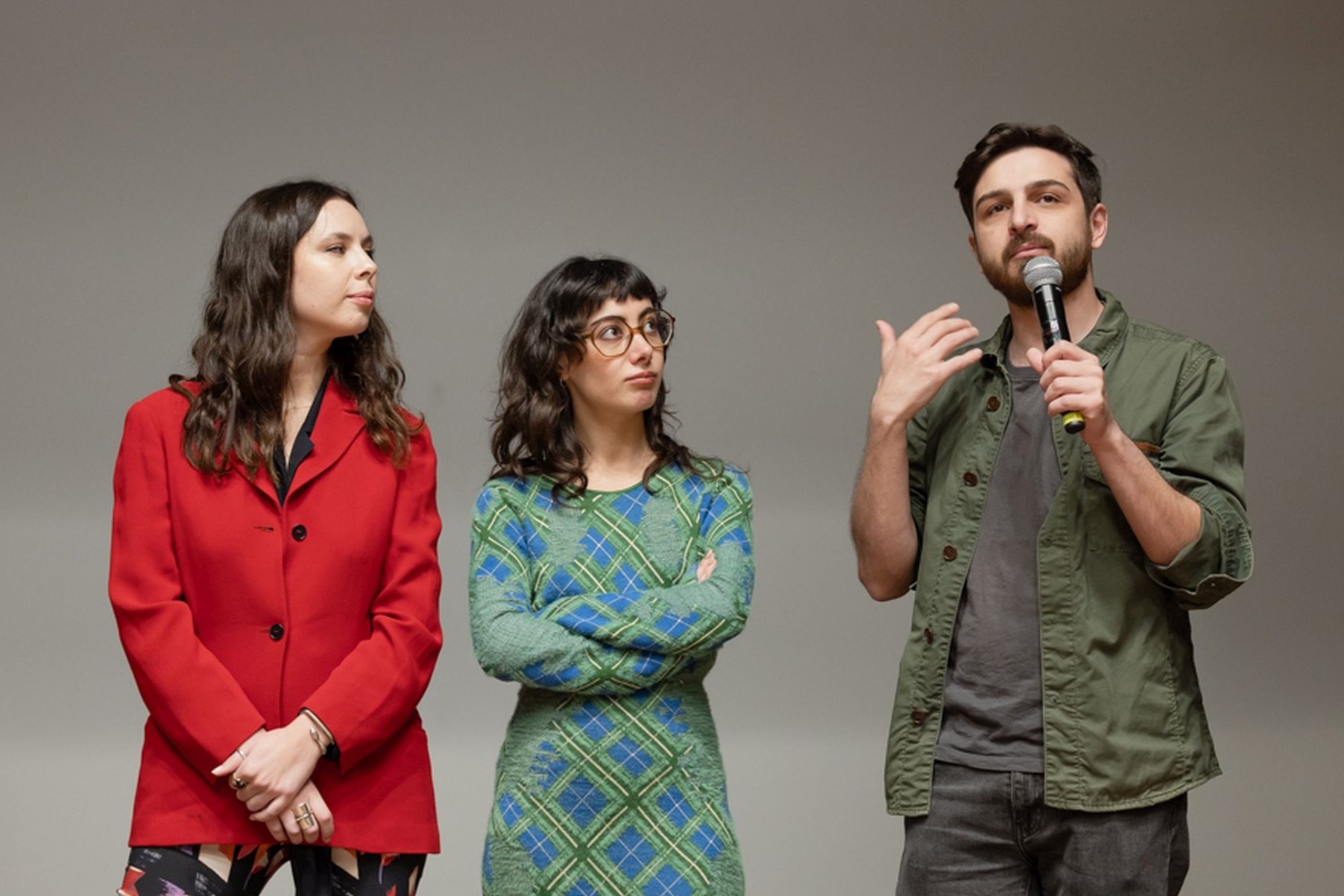
‘The idea came like: we have two actresses, and we have a location, this apartment, and we have a camera. So let’s shoot a film’, says Bliadze. ‘It was like an experiment.’
Mumladze asked to co-write the film with Bliadze, telling film blog Screen Queens that her ‘lifetime experience as a woman in this world’ was necessary insight for a film about two women. They planned and wrote as a team, sometimes including the other actors and crew members, starting with exploring the problems a young woman in Tbilisi might face.
They recalled Georgia’s femicide statistics — the country has a population of around 3 million people and around 20 cases of femicide each year — and went from there.
Bliadze adds that ‘in Georgia it’s very forbidden for women to talk about sex, to have sex, to experiment with their sexuality somehow.’ As Tina leaves her marriage and finds her independence, she experiments sexually, but the film is not a romance.
‘We did not want to make the film about a love story between these two girls because this film is not about that’, says Bliadze, adding that the film is both about friendship, and about Tina understanding that, despite seeking support, she will have to handle the challenges she faces independently.
‘That’s how life is: you’re alone with your problems, and you have to handle them alone somehow’, says Bliadze.
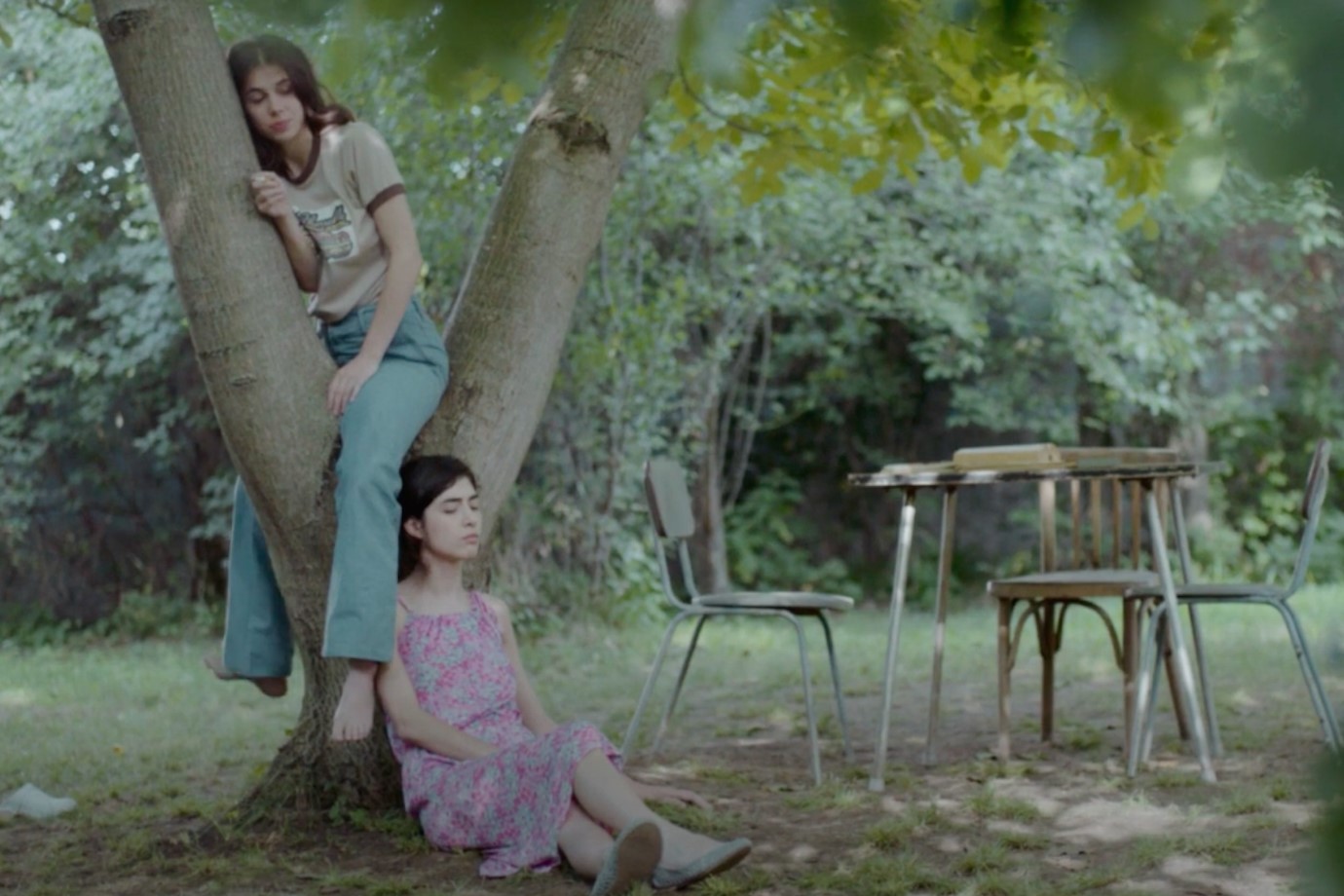
The queer romance in Gondola was similarly both unexpected and incidental for Nini Soselia, one of the two lead actors, who says that she went to a casting call for a heterosexual romance. But Helmer later called her to say that he wanted to cast her and another woman: would she be okay with acting in a film about two women instead?
Soselia says it was an easy yes for her — she had been on the verge of quitting acting, unable to find work, and besides, the script was fairly tame, one cablecar striptease aside.
In contrast, Hermine Virabian’s short documentary Chemo Dao (Sister of Mine) was queer from its conception, but its setting in Georgia came as a surprise.
As a journalist in Armenia, she had covered queer topics for a long time.
‘This society is very homophobic and there were not that many alternative voices’, says Virabian. ‘For me it’s important to follow those hidden parts.’
Taking a straight friend to a queer-friendly club in Yerevan underscored just how ‘hidden’ those lives could be.
‘This friend was shocked!’, says Virabian. ‘I remember he had one question, which he was repeating all the time: where are those people in everyday life? Why don’t I see them? Why don’t I interact with them?’
‘I told him: “They live in your building, they live in the next building, next to you. They are your neighbours.” But that’s the thing, queer people are so invisible.’
‘I wanted to bring those layers of Armenian reality together, you know, that don’t coexist that well together in everyday life’, says Virabian.
She decided to make a film about the drag scene in Yerevan, where she would accompany one of the queens to a market, and document conversations and reactions.
But after traumatic experiences in the 2020 Nagorno-Karabakh war, Virabian ended up moving to Georgia.
‘I decided that I’m going to do something about my region, I can’t let it only damage me, I should answer it back’, says Virabian, who describes herself as ‘South Caucasian’, and says she aims to build bridges between the region’s countries and communities.
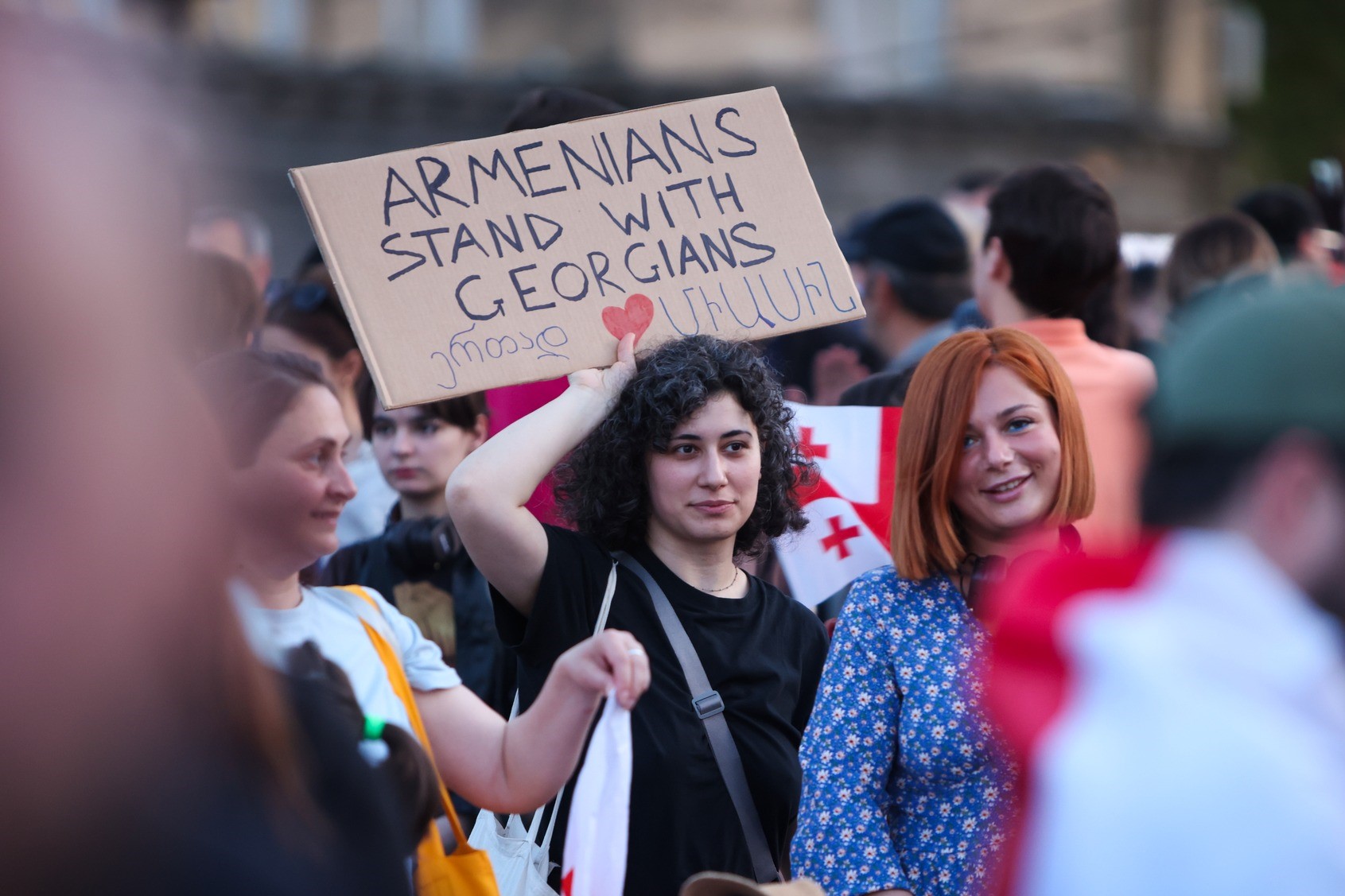
In Tbilisi, Virabian crossed paths with a drag queen she knew, Homo Erectus, on the way to the metro to buy fabric with one of his ‘drag daughters’, and she realised that she could make her film in Georgia.
‘Many and all kinds of threats’
Whether queer by chance or design, making queer films can be dangerous in Georgia.
Protesters at the Georgian premiere of And Then We Danced in 2019 threw firecrackers at police and filmgoers, and several times attempted to storm the cinema.
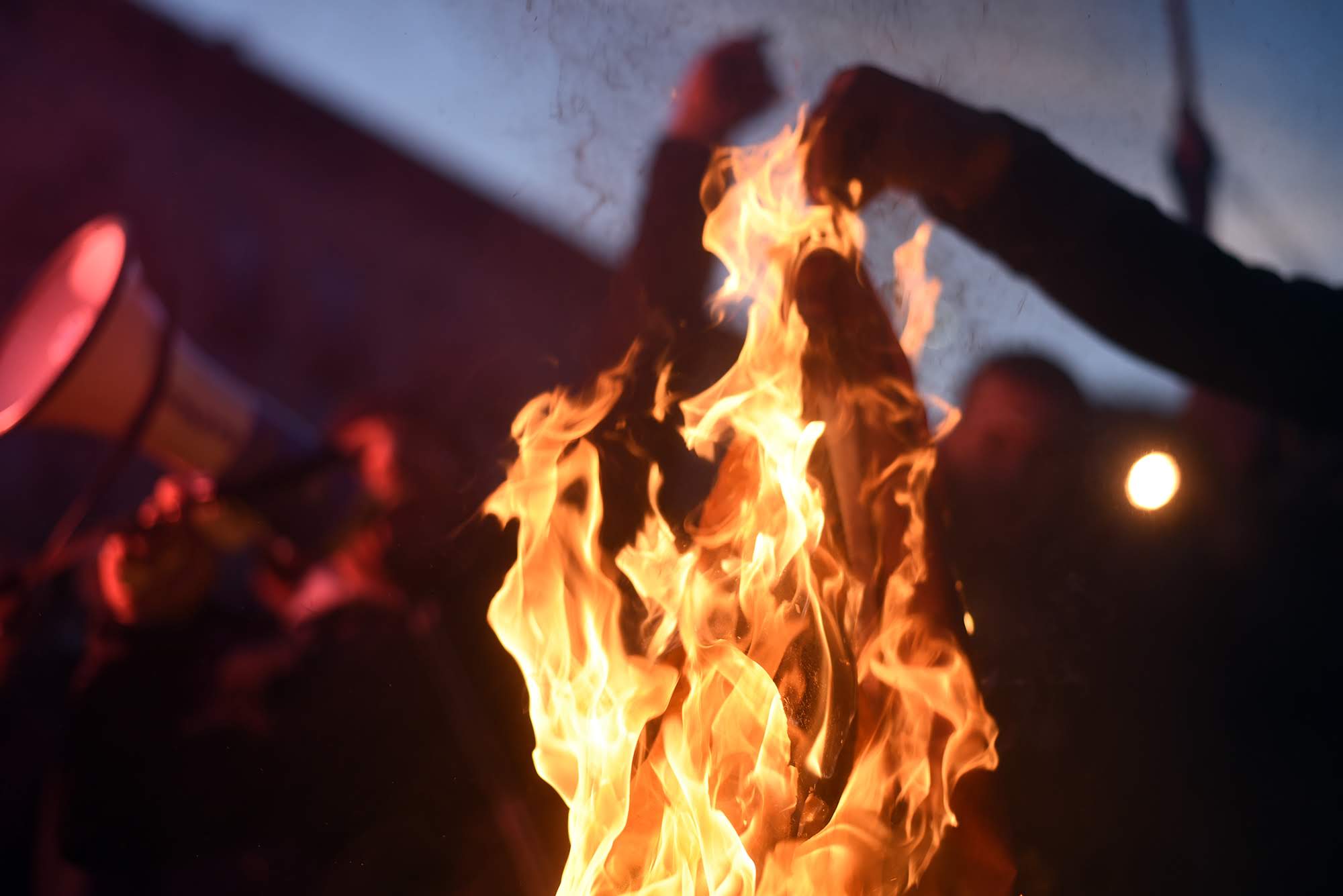
The film’s lead, Levan Gelbakhiani, told Film Inquiry that he refused the role ‘five times probably, because of the topic’, out of fear that having taken the role he would not be safe in Georgia.
Speaking to other media, he added that he was afraid of the effects on his family and friends, noting also that he faced ‘many and all kinds of threats’ in the months following the film’s release.
Homophobic protesters similarly gathered outside a screening of Tamar Shavgulidze’s queer drama Comets (2019) and a Tbilisi Pride showing of Elene Naveriani’s Wet Sand (2021), a drama about queer love and homophobia on the Black Sea coast.
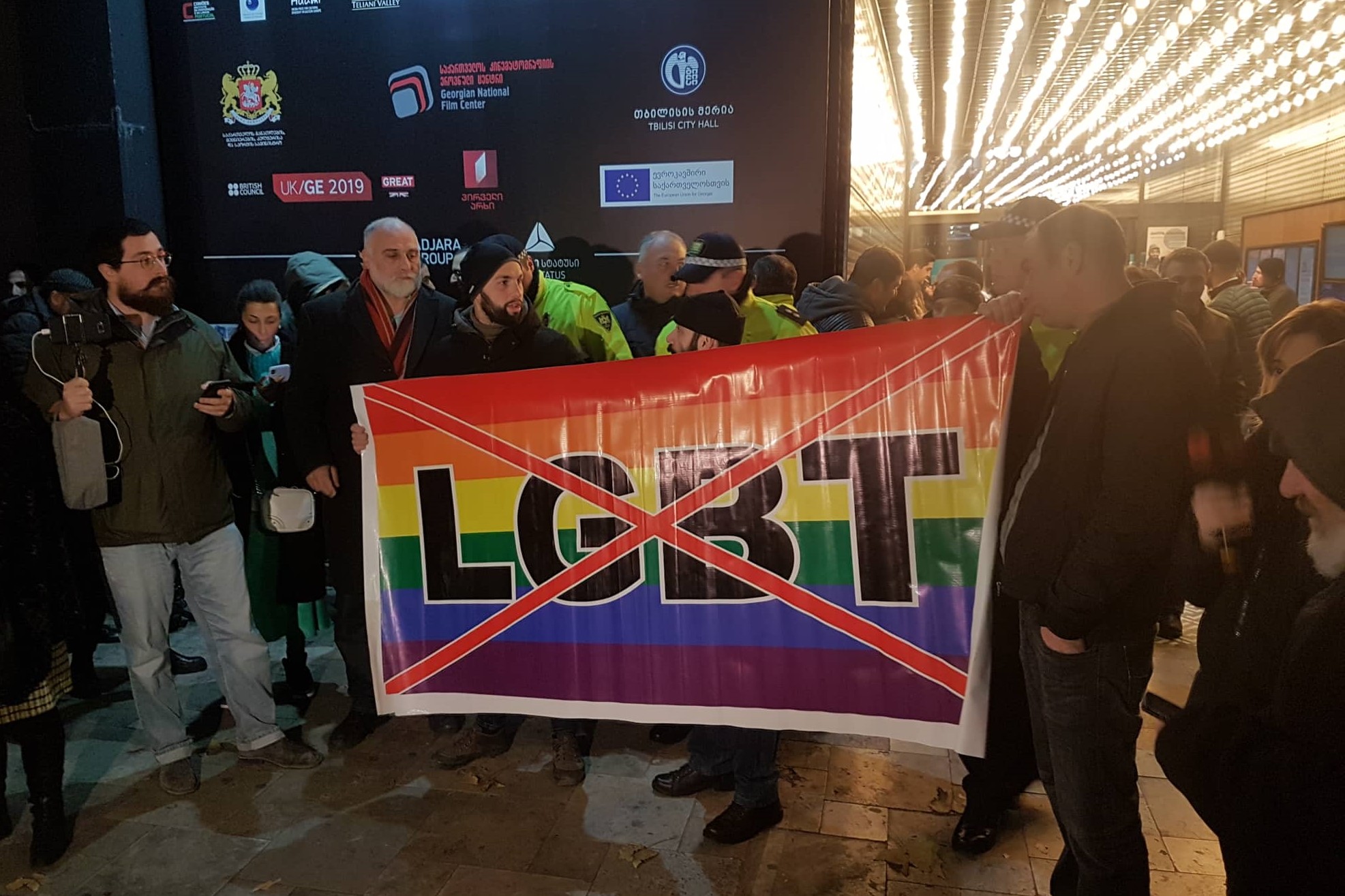
However, other films have received less pushback, whether due to a difference in subject matter or context.
Bliadze notes that in Georgia, ‘the huge problem is if a man is with a man’, due to the nature of a patriarchal society. ‘So if a woman is with a woman, I thought it would be less problematic for them.’
While And Then We Danced also focused on Georgian traditional dance, potentially threatening notions of Georgian national identity, A Room of My Own’s themes are determinedly urban and modern.
While protests did take place outside cinemas showing A Room of My Own, their size and approach was much milder than those against And Then We Danced, with small groups of protesters standing silently holding signs.
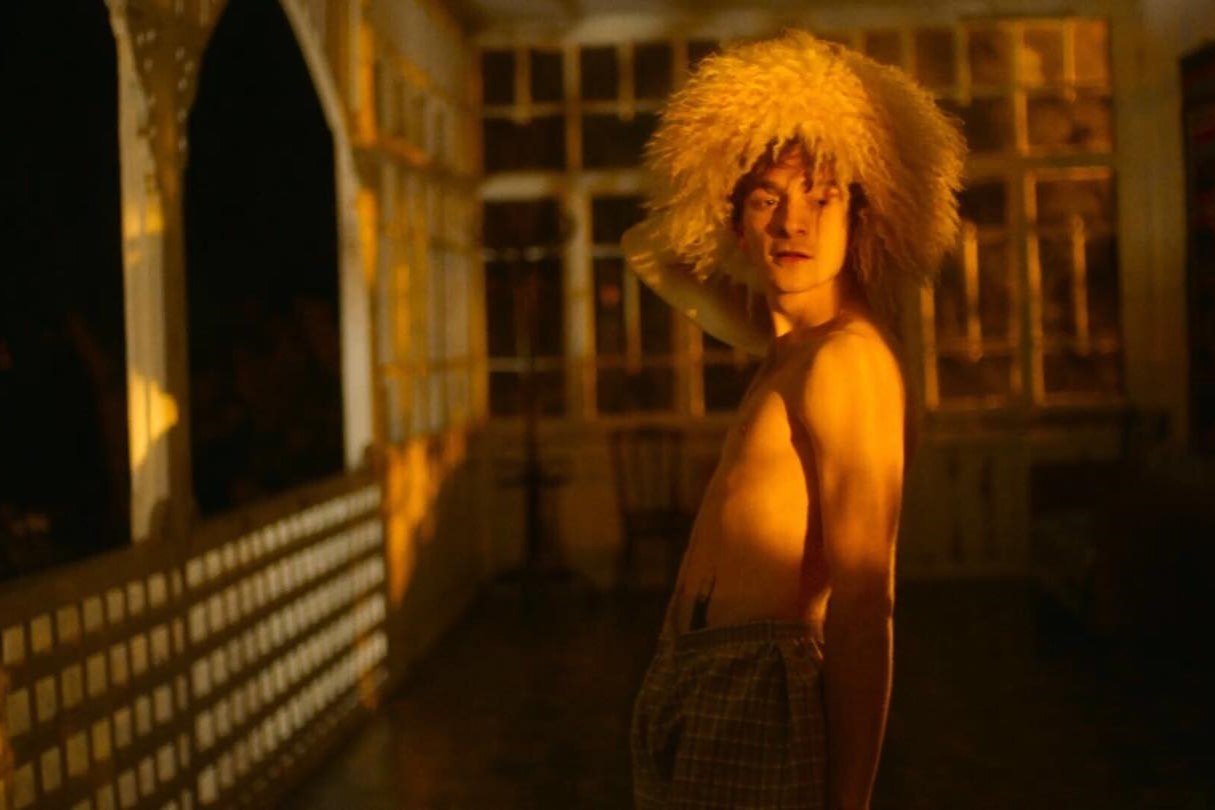
Bliadze adds that they didn’t consider the potential consequences of the film’s lesbian scenes while filming them; instead, they were focused on ensuring they filmed and acted well.
He also suggests that the scenes didn’t feel that out of the ordinary to the film’s cast and crew.
‘We’ve all had all kinds of experiences in our lives, so it wasn’t that distant from us’, says Bliadze. ‘Nobody’s straight in a way, like if you’re in a situation, in the right place, in the right mood, you can do anything. That’s my philosophy of life: we are all queer.’
Soselia similarly says that she had more immediate concerns than the film’s future reception: she was afraid of heights, and the Khulo-Tago cablecar that is central to the film at points hangs almost 300 metres above the valley it traverses.
‘When the director asked me if I had a fear of heights, I lied’, she says. ‘It was unbelievable for me to act in this gondola, and to stay in front of the open door in these high mountains. But that’s my profession and I have to do it!’
However, Virabian says she worried ‘all the time’ about the safety of her two leads, as they were not actors playing a role, but simply queer people allowing her to document and publish parts of their lives in Tbilisi.
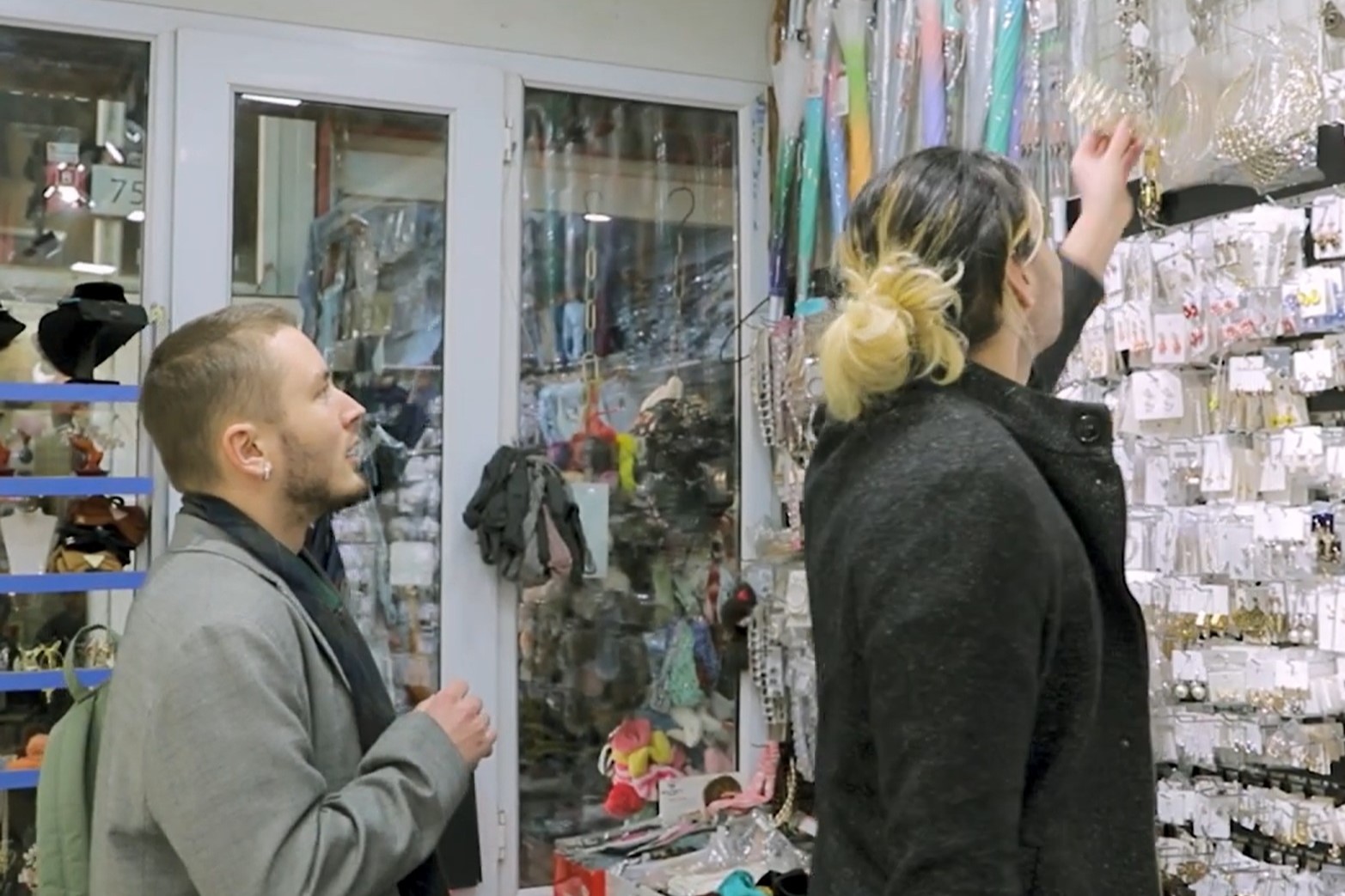
‘Those artists, those people put so much work in it, and there is also emotional and sometimes also physical danger’, says Virabian. ‘They don’t have financial security, it’s very difficult to earn enough, so they need to be so cautious how they also spend all the money that they earn, getting to these bazaars and trying to get those cheap products, materials and fabric, to be able to sustain it. It’s a huge journey.’
There are hints in the film of the risks that come with being a drag queen in Tbilisi, with the pair having to hide what they are shopping for.
‘In the bazaar there is a part when a woman is asking “why do you need those things” and he is like “just for theatre”, he doesn’t elaborate’, says Virabian. ‘But we see that this women is getting interested, and it’s also shocking for her that two men can potentially buy jewellery’.
Soselia adds that there were no protests when Gondola was screened at the Tbilisi International Film Festival in December.
‘In Georgia, Georgian people do not know about this movie at all’, says Soselia. ‘There is nothing to pay attention to, you know. There is no sex scene, no kissing, nothing like that. And that’s why they have not had any negative reactions.’
However, it is noteworthy that a number of the recent films were directed by non-Georgians, or Georgians based in Europe, some citing that this allowed them to make such films. One Georgia-based Georgian director whom OC Media contacted asked that their documentary not be mentioned, because they didn’t want to risk attracting attention in Georgia to their film and its subjects.
Cracking down on queer activism and filmmakers
Until relatively recently, things had been changing for the better for Georgia’s queer community, says Bliadze.
‘After 2013, lots of people came out, and we have more clubs, nightclubs for queer people. It’s very free to go there, and people are not afraid. It’s very developed’ he says.
He adds that while there is a generational divide in terms of LGBTQ acceptance, there are also younger people with homophobic views, and older people who are ‘more open-minded’.
His parents and ex-wife’s parents all acted in the film, and watched and liked it.
Soselia adds that many Khulo locals, including some children who acted in the film and their families, did not know what the film was about during filming. All were invited to the screening in Tbilisi to see the film, with Soselia stating that they enjoyed the film.
Virabian adds that, despite perceptions of Tbilisi as very homophobic, the queer scene is strong and self-sustaining, with queer feminist art festivals, punk performers, talks, exhibitions, gay nights, and drag performances all part of Georgia’s diverse cultural scene.
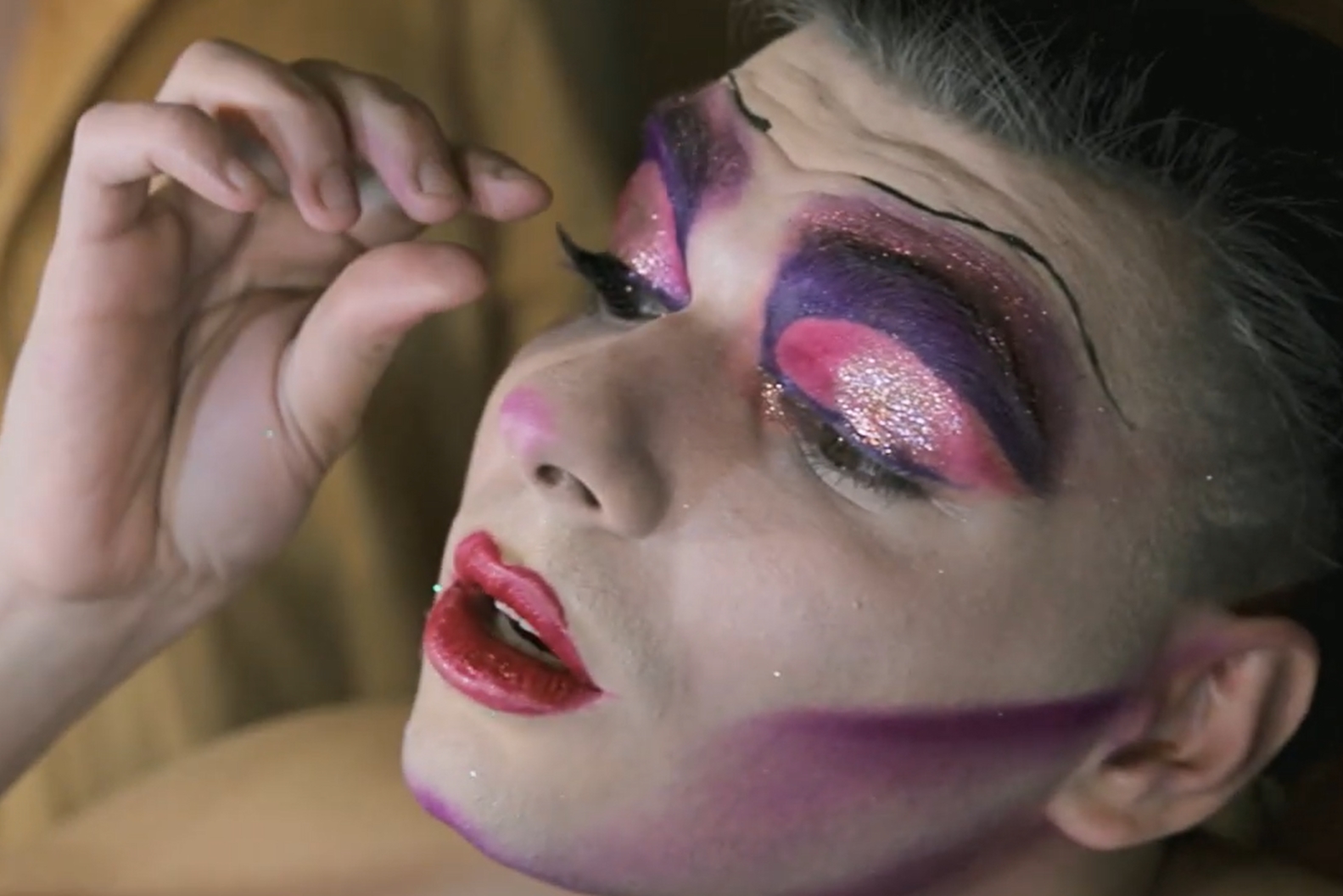
‘Of course this is also part of Georgian reality’, says Virabian. ‘The conversations around Pride and violence are not the only reality of the Georgian queer community. […] It’s also about the power of the community that stands together. They find their peace and freedom.’
However, with the government’s recent drive to crack down both on queer rights and on film-making more broadly, the future of queer film in the country appears under threat.
[Read more: Explainer | What’s in Georgia’s new anti-queer bill?]
‘If they had this [queer ‘propaganda’] law, I couldn’t make a film like this, for example. It would be censorship for films, and not only for films’, says Bliadze. ‘If they pass this law, after that it would be problematic to shoot And Then We Danced and A Room of My Own, these kinds of films, in Georgia.’
Bliadze is also one of over 500 Georgian film professionals who have been boycotting the Culture Ministry and the Ministry-run Georgian National Film Centre (GNFC) for over a year already.
He says that after the release of Salome Jashi’s documentary Taming the Garden (2022), which focused on Georgian Dream founder Bidzina Ivanishvili’s penchant for collecting large trees, the government replaced the chair of the GNFC and dismissed large numbers of the centre’s staff.
‘The government thought “It’s a film, nobody’s watching Georgian films”, they didn’t care’, says Bliadze. ‘Then Taming the Garden became very popular and so they said “ok, we have to take this Georgian National Film Centre in our hands.” ’
While the ‘reformed’ GNFC hasn’t explicitly set limits for content, Bliadze is sure they wouldn’t fund a film like his.
‘We know their mindset, so we know what kind of people they are. These are the people who want to enact the LGBT propaganda law in Georgia, so they would never finance this kind of film, for sure.’
The problem isn’t new — Bliadze says his short film Tradition (2019), which deals with the experiences of a pair of gay tourists in Georgia, couldn’t get financing from the GNFC at that time because the jury was homophobic.
But, he adds, the years when Gaga Chkheidze was chair, from 2020 until his sudden firing in 2022, were ‘like a golden age of the Georgian National Film Centre’, because jury members were ‘completely open to any ideas’, and so straightforwardly choosing the best projects.
Among the films they financed in this period were Akin’s Crossing and Naveriani’s Wet Sand.
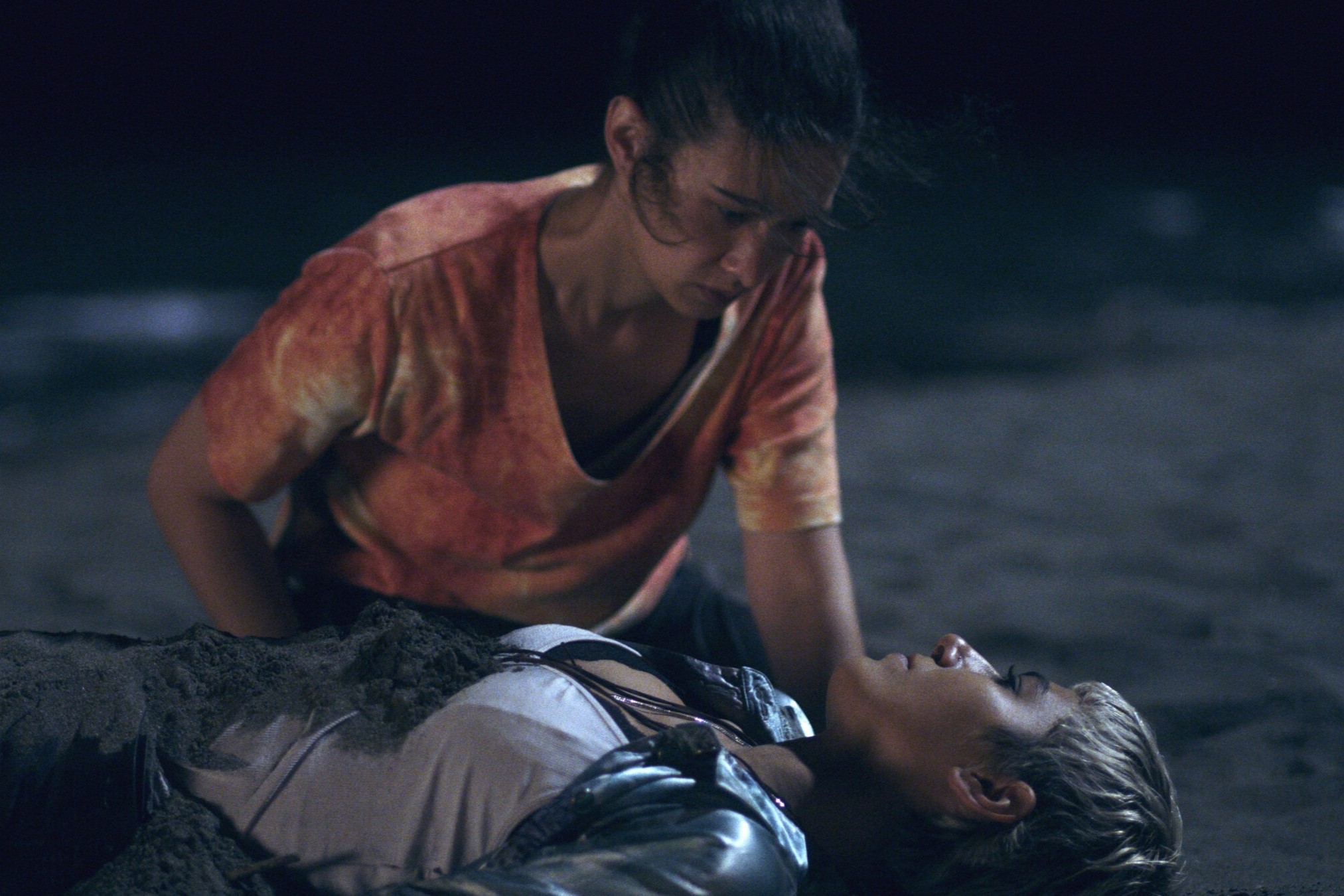
By the time A Room of My Own applied for funding for post-production, the golden era was over, and Bliadze had to look abroad for support. Now, he says, the GNFC is focused on funding historical films about Georgian heroes and the glorious past.
Bliadze, Naveriani, and Mumladze have also been outspoken in their opposition to the crackdown on the Film Centre, with Mumladze reporting that she was then unexpectedly denied the opportunity to represent Georgia at a European film programme.
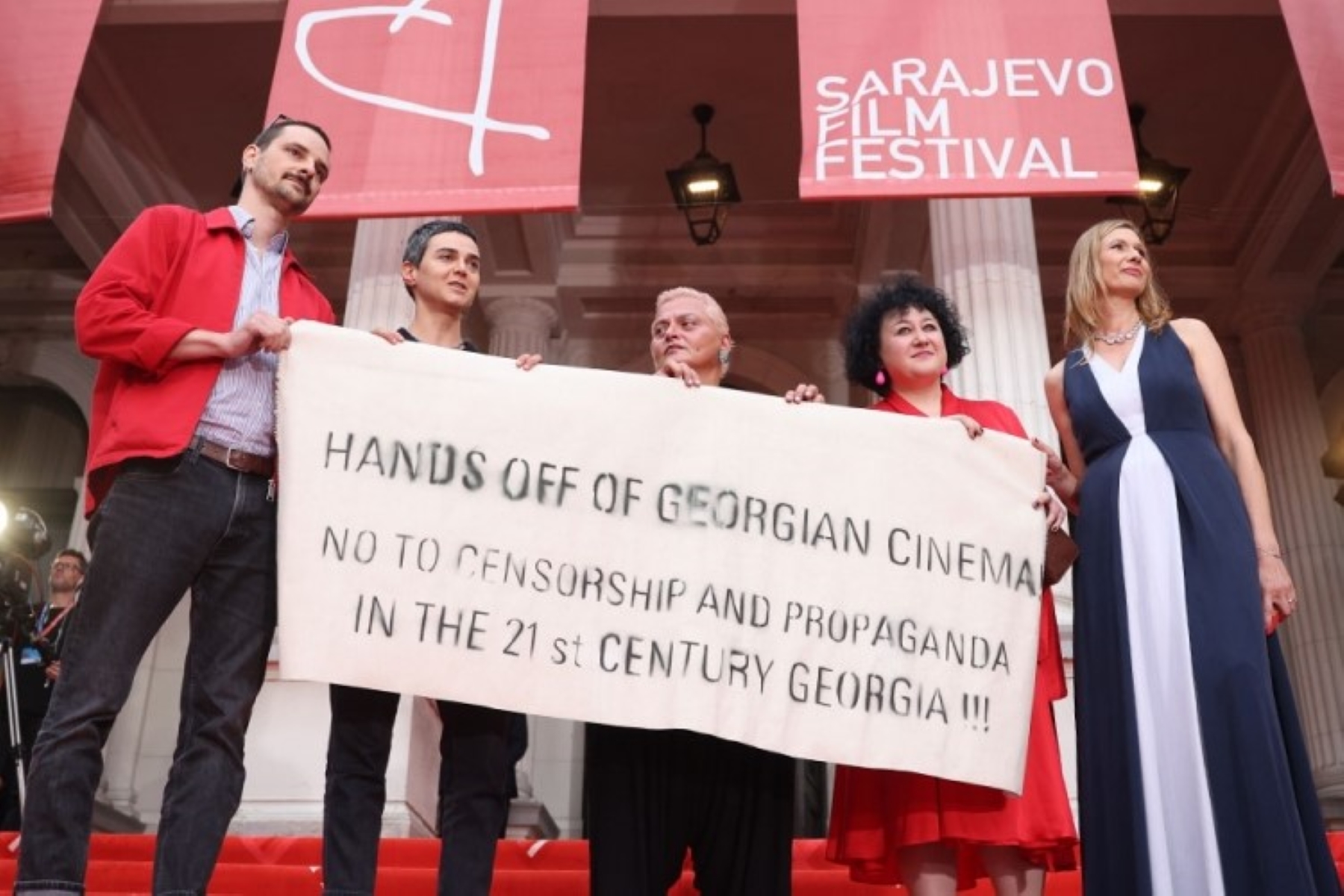
In making A Room of My Own, Bliadze’s team’s main goal was to have young women who might face these kinds of problems view the film, so they put it online for free and screened it at cinemas in Tbilisi and Batumi, hoping to encourage their viewers to analyse their lives, ‘to question how they live and how they can face this patriarchal society.’
Soselia also wants more Georgians to know about Gondola, describing it as a film about love and friendship.
‘Love is love for me. I think the movie is about love and that’s it.’
Regarding their expectations for the months and years ahead, neither Virabian nor Bliadze have plans for a new film.
Both are working on more bread-and-butter projects, and also giving their attention to protesting Georgia’s foreign agent law.
‘I really believe in South Caucasian unity and I want to dedicate my work and my life, at least for now, to that’, says Virabian.
‘With my friends, activist friends, we have this beautiful expression that I love so much’, says Virabian. ‘It’s kind of a joke, but also part of the truth. Because before the Soviet Union there was this federation of Transcaucasia, you know? And we, referring to that, we say “Let’s make Caucasia trans again!” So here I am, trying to do it.’




